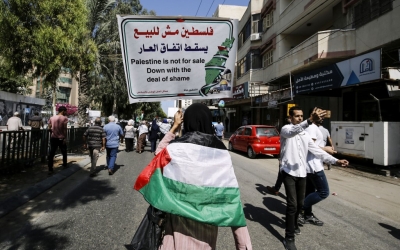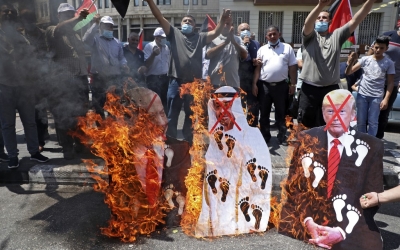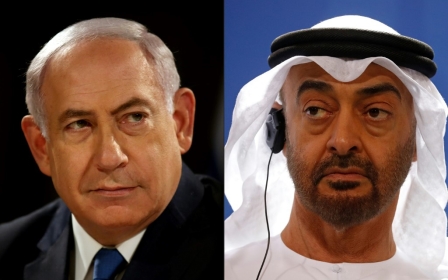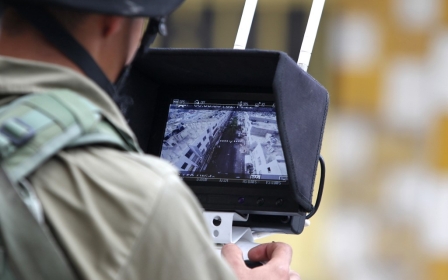Bahrain announces plans to normalise relations with Israel
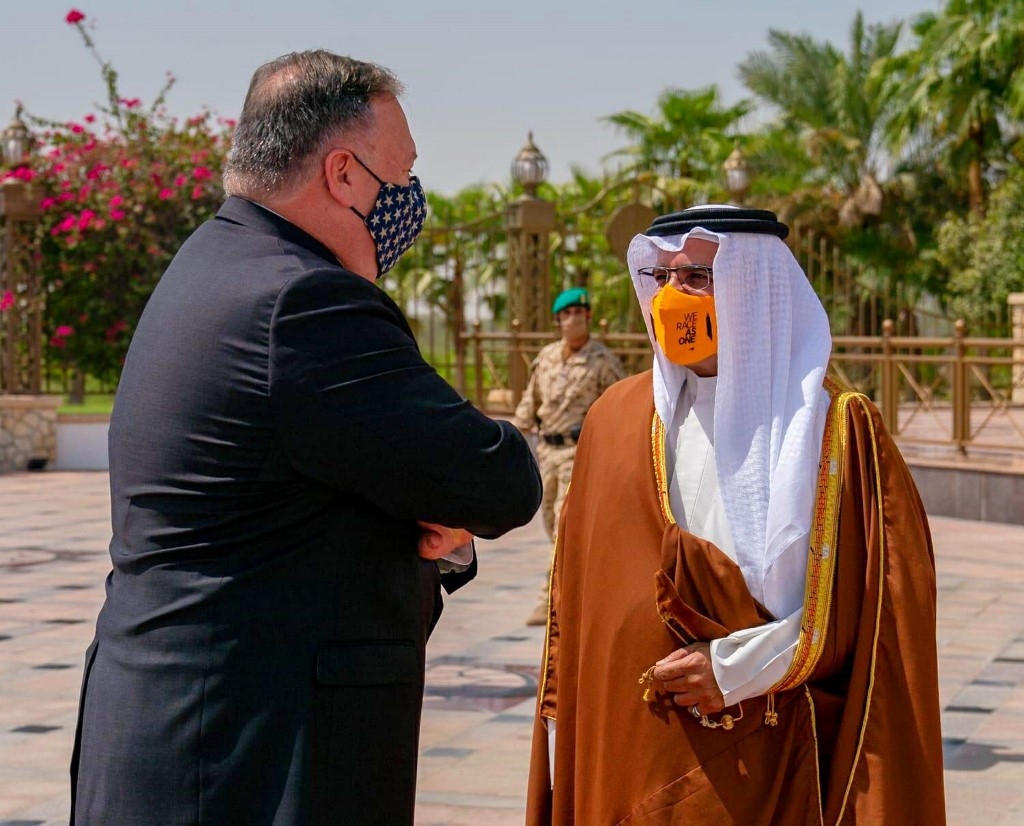
Bahrain has agreed to normalise relations with Israel, US President Donald Trump tweeted on Friday, becoming the first Arab country to emulate the United Arab Emirates' decision to do so last month.
A representative of Bahrain is set to join UAE Foreign Minister Sheikh Abdullah bin Zayed bin Sultan al-Nahyan and Israeli Prime Minister Benjamin Netanyahu in Washington for a signing ceremony at the White House on Tuesday, a joint statement released by the three countries said.
New MEE newsletter: Jerusalem Dispatch
Sign up to get the latest insights and analysis on Israel-Palestine, alongside Turkey Unpacked and other MEE newsletters
"This is a historic breakthrough to further peace in the Middle East," said the joint statement, tweeted by President Donald Trump.
"Opening dialogue and ties between these two dynamic societies and advanced economies will continue the positive transformation of the Middle East and increase stability, security, and prosperity in the region."
Prime Minister Netanyahu immediately welcomed the announcement in a video statement, saying it marked a "new era of peace".
"For many long years, we invested in peace, and now peace will invest in us, will bring about truly major investments in Israel's economy - and that is very important," Netanyahu said.
The king of Bahrain, speaking on the phone with Trump and Netanyahu, reiterated the necessity of reaching a fair and lasting peace between Israel and Palestine, based on the two-state solution, Bahrain's state news agency (BNA) reported.
Meanwhile, the Palestine Liberation Organisation (PLO) slammed the deal as a "betrayal of the Palestinian cause".
For its part, the UAE's foreign ministry released a statement hailing the move as "a significant step towards an era of security and prosperity," adding that it would "expand the scope of economic, cultural, scientific, and diplomatic avenues of cooperation".
In a post on Twitter, Egyptian President Abdel Fattah el-Sisi said he appreciated the "important step" of establishing ties between Bahrain and Israel. Egypt, following the Camp David Accords in 1978, became the first Arab country to normalise ties with Israel, while Jordan, during the Oslo Accords in 1994, was the second. On 13 August, the UAE became the third.
US pressure campaign
The decision to break the decades-long status quo comes during an as yet less-than-successful US pressure campaign to get other Arab states to follow the UAE's lead.
US Secretary of State Mike Pompeo ended a regional tour two weeks ago, having failed to get a single country to follow suit, as Bahrain, Oman and Sudan refused to make any commitments to mend relations with Israel. During the trip, other countries not visited by the top US diplomat, including Morocco and Saudi Arabia, also announced their refusal to establish ties.
At the time, Bahrain said an accord with Israel would not materialise without the establishment of an independent Palestinian state, the same argument submitted by Saudi Arabia.
But last week, both Gulf countries said they would allow flights between Israel and the UAE to use their airspace.
Bahrain, a small island state in the Gulf, is a close ally of Saudi Arabia and the site of the US Navy's regional headquarters. Riyadh in 2011 sent troops to Bahrain to help quell an uprising and, alongside Kuwait and the UAE, offered Bahrain a $10bn economic bailout in 2018.
Still, Bahrain's decision to join the UAE in building diplomatic ties with Israel starkly breaks with longstanding Saudi policy.
'Blackmail': Arab League fails to condemn move
Palestinians have said normalisation would weaken a historic pan-Arab position that only an Israeli withdrawal from occupied territories and acceptance of Palestinian statehood would allow for normal relations with the Arab countries.
While the Emirates has stated that the deal was predicated on Israel freezing its plan to annex large areas of the occupied West Bank, Netanyahu has publicly said that annexation was still on the table.
On Wednesday, the Arab League failed to pass a resolution that would have condemned the UAE for its normalisation agreement, which signalled a softening of the Arab world's diplomatic blockade against Israel.
Palestinian Ambassador Mohannad Aklouk told the Ma'an news agency that after a three-hour discussion, the league chose not to include a clear censure of the UAE-Israel deal.
"Palestine presented a draft resolution that condemns the UAE-Israel normalisation deal," said Aklouk. "The Arab countries, however, voted down the draft."
Bahrain specifically objected to the wording of the Palestinian draft.
In the final communique, the Arab League agreed to include an emphasis on a commitment to the 2002 Arab Peace Initiative, the two-state solution, and the land-for-peace principle.
Middle East Eye delivers independent and unrivalled coverage and analysis of the Middle East, North Africa and beyond. To learn more about republishing this content and the associated fees, please fill out this form. More about MEE can be found here.


